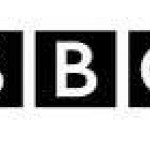- Settore: Broadcasting & receiving
- Number of terms: 5074
- Number of blossaries: 1
- Company Profile:
The largest broadcasting organisation in the world.
Mid-term elections take place every four years, to elect members of Congress. Voters elect the entire House of Representatives, a third of the Senate and many state and local officials. The elections fall in the middle of a president's four-year term. In 2010, mid-term elections fall on 2 November.
National convention The party assembly held every four years at which state delegates from across the country gather to vote on the party's candidate for president and vice-president.
National conventions serve mainly to formalise the will of the majority of voters, expressed during the earlier state primaries and caucuses. Usually the winner of the greatest number of delegates from the primary and caucus states will receive the party's nomination.
Today the event is largely a platform for the prospective candidate to present their choice of vice-presidential running mate and to draw up their policy agenda.
Industry:Government
A private meeting of party members designed to seek agreement on delegates for a state or national nominating convention.
Participants in presidential caucus meetings generally elect delegates to county conventions who later choose delegates for a state or local congressional convention. Selected delegates are not bound, but usually follow the wishes of caucus-goers.
Industry:Government
A term usually referring to a member of the Blue Dog Coalition, a group of conservative Democrats in the House of Representatives. Many blue dogs come from Republican-oriented states and are concerned with fiscal restraint and conservative social values.
Industry:Government
The merchandising created by campaigns and political organisations - buttons, hats, t-shirts etc. Swag can be purchased, but it is often given to volunteers, supporters and journalists as a gesture of goodwill.
Industry:Government
This dismissive term is applied to politicians running for office in states or communities where they have only lived for a short time. Hillary Clinton, for example, was called a carpetbagger when she ran for Senate in New York because she had grown up in Chicago and lived much of her adult life in Arkansas and Washington DC.
Industry:Government
Money contributed by an individual directly to a particular campaign.
Individuals can currently contribute $2,300 to a candidate's primary campaign, and an additional $2,300 to a candidate's general election campaign. They can make these donations to multiple candidates.
The first $250 donated to a candidate by an individual can be matched dollar-for-dollar from federal matching funds.
Limits in state-wide elections vary according to state laws.
Industry:Government
Candidates seeking the Democratic or Republican nomination can suspend their campaign.
Candidates who have suspended their campaigns are able to direct their pledged delegates to support one of the other candidates for the nomination at the convention.
These delegate-votes may serve as a bargaining chip if the candidate wants the promise of a job in the eventual nominee's possible future administration.
Industry:Government
Generally considered to be the upper house of the United States Congress, although members of the other house - the House of Representatives - traditionally regard it as a co-equal body.
The Senate has 100 elected members, two from each state, serving six-year terms with one-third of the seats coming up for election every two years. The vice-president serves as the presiding officer over the Senate, although he does not serve on any committees and is restricted to voting only in the event of a tie.
Industry:Government
The term used to describe politicians and pressure groups opposed to abortion or allowing women to opt for abortion.
Some American advocates of the pro-life position believe abortion should only be allowed in cases where a pregnancy results from rape or incest. Others believe that abortion should be ruled out altogether.
Industry:Government
A chad is the small piece of waste paper or card created when a hole is punched in a ballot.
Chads became famous in the 2000 presidential election, when the results in Florida were so close that a recount was necessary and electoral officials were forced to examine the ballot papers to determine voters' intentions.
Some voters had punched their preferences, but the chad had not fully separated from the ballot (a hanging chad). In other cases, and indentation had been made in the ballot but it had not been punched through (a pregnant or dimpled chad).
Industry:Government
